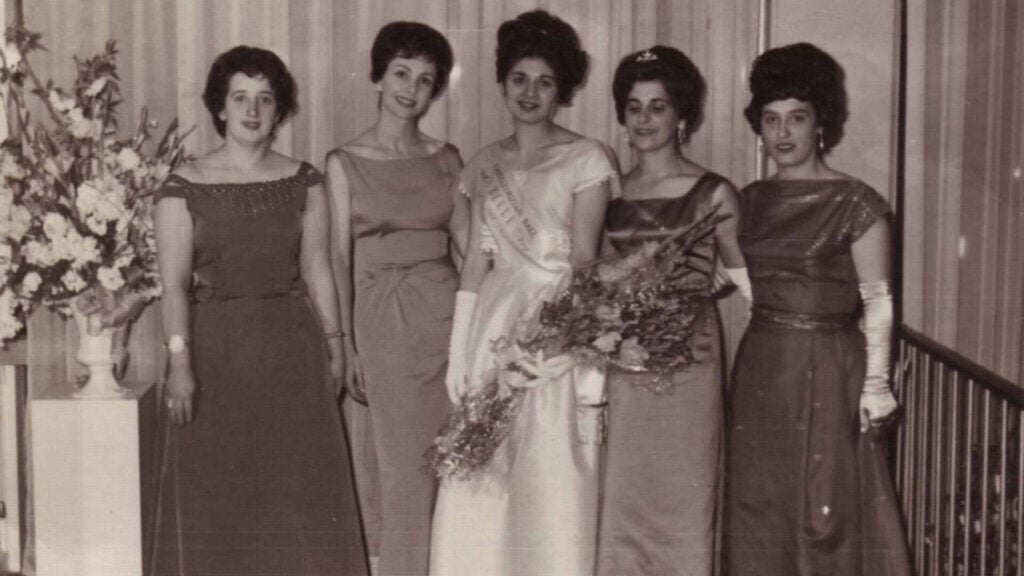An idea has been hovering in Greek America, Greek Australia, and Greek Canada: it is time for Greek diasporas to start speaking with each other, comparing experiences, similarities, and differences.
It is a beneficial conversation. It will focus on the issues the diasporas confront and deliberate, and contribute to self-understanding.
Why compare Greek diasporas?
The prevailing narrative largely views the “diaspora” exclusively with Greece as the hub, neglecting for the most part these issues. We need a comparative project focused on us.
Comparing diasporas presents vast challenges. Each diaspora (Greek Australia, Greek Canada) is internally diverse. It is one thing to grow up middle-class Greek in multiethnic Los Angeles and working-class in the close-knit ethnic communities in the largely homogeneous rural Ohio. Greeks in the province of Quebec, where the official language is French, negotiate their identity differently than those in the Anglophone province of Ontario. What is more, each diaspora is shaped by the ever-changing political, economic and ideological forces of its home society (say “white Australia policy” vs multicultural Australia).
Each diaspora, therefore, is a heterogeneous and dynamic phenomenon–not a monolithic entity; it needs understanding in specific contexts and the study of scattered archives. The comparative project is time-consuming and requires considerable human and material resources.
One way to tackle this complexity is to center research around a particular topic: language preservation, for example, which generates a great deal of interest; or histories of working-class experiences, relatively neglected today.
The limits of Greek America’s approach
The question I wish to focus on in this writing is most vocally expressed in Greek Australia and Greek Canada, and with less intensity in Greek America. It involves reflection on three interrelated issues. First, how does the community support learning of a diaspora’s multifaceted history and culture; second, how to promote creative expressions–via various media–of the diasporic and immigrant experience; and third, how to sustain a rigorous public sphere which disseminates and deliberates on the significance of this cultural output.
I call the interest in advocating these practices “diaspora cultural activism.”
In this conversation, I note that this cultural activism is not at the centre of Greek America’s priorities, a puzzling situation given the emphasis on paideia as a core value of its identity. I sketch a tentative answer with the following comparative aim in mind: How does cultural activism in Greek Canada and Greek Australia provide a model for those advocating it in Greek America?
Each diaspora, therefore, is a heterogeneous and dynamic phenomenon–not a monolithic entity; it needs understanding in specific contexts and the study of scattered archives.
I focus here on those conditions that have historically compromised Greek America’s commitment to genuine self-exploration. I identify four historical and cultural forces that have compromised this development.
Politics of pride and identity
To start with we have the cultural politics of ethnic pride. Like many European American groups, Greek America entered US multiculturalism via a celebratory narrative of socioeconomic success, pride in heritage and culture. Its self-representations tout the group as ethnoreligious and family-oriented. They aspire to be seen as model ethnics who have fulfilled the prevailing American ideology of bootstrap mobility.
Projecting this positive image matters more than acknowledging the actual social experience. Experiences such as intra-ethnic exploitation, ethnocentrism, significant support for the junta (by a group priding itself as the cradle of democratic principles), illegalities, consent of some demographics to racist segregation, interfered with the good name of the group. They were therefore excluded from public narratives. A commitment to historical understanding and recognition of its internal plurality was sacrificed in exchange for an idealised public image as a source of prestige to the group.
Second, at play is the institutional marginalisation of Greek American studies. Though Greek America supported academic modern Greek Programs, the major mandate was the teaching of Greek language and modern Greek culture, not Greek American studies. A critical mass of scholars was drawn to the study of Greek Nobel prize poets and internationally celebrated writers rather than the immigrant experience. Greek American learning was sidelined in the academy in general and was marginalised in Modern Greek Studies programs. Diasporic self-understanding and the recognition of Greek American arts suffered major setbacks.
Third, in America, the ethnoreligious model of community organisation dominates, contrasting with the strong presence of secular communities in Greek Australia and Greek Canada. In conjunction with what sociologist Charles Moskos calls the Greek American conservative ethos–– with “even a trace of anti-intellectualism”–– the ethnoreligious community was hostile to experimental arts, expression of non-normative identities (LGBTQ), and new ideas in activism for social change (feminism, for example), among other initiatives. Denied a nurturing environment, Greek American artists and intellectuals turned their backs on the community as intellectual participants. A tradition of critical reflection never took root within the parishes.
Last but not least, Greek American intellectuals and artists have been an exiled minority. The normative emphasis on college education as the means for social mobility weakened Greek Americans in the arts, the humanities and the social sciences. Community conservatism displayed no patience with critical ideas and ideals. During the post-1960s immigration wave, there was no robust labour movement to nourish social critique. Some thinkers persisted, writing about neglected aspects of the immigrant experience, promoting Greek American learning in journals they created, while others, tired, turned into silence or left the country.
For all these reasons, Greek America has largely compromised its commitment to critical self-understanding, recognition of its multiplicity, and critical historical learning. It operates as an insecure minority that opts for positive caricaturing, denying its contradictions, faults, and innovative ideas, ultimately its human complexity.
Lessons from Australia and Canada
But an alternative paradigm has been emerging in Greek Canada and Australia. Communities advocate historical and cultural self-understanding, promoting this project via partnerships with universities. They fund the making of professional diaspora archives and their research. In the spirit of cultural democracy, books feature the internal diversity of the group, including stories previously taboo for families and communities. Diaspora artists are invited to present their work in community fora. Secular communities feature public talks about civic issues at the home society. Educators encourage high school children to craft their stories about growing up Greek Australian. Perhaps opening up school curricula to diaspora material is the next step, if this is not already happening?
Community leaders are aware of course, that historical education will produce knowledge which might be unflattering to the group. But their support takes a vital step toward liberating the diaspora from the tyranny of the model ethnic ethos of self-censorship. It puts in practice the ideals of paideia and democratic inclusion.
In this paradigm, we witness a radical redefinition of success, prestige, and pride. The reputation of diaspora Greeks is not based on sugarcoated images but actual civic and cultural contributions. Learning about the experiences of a group is also learning about the home society. Cultural activism in the diaspora enriches the literary, cultural and historical fabric of both the group and the home nation. Pride rests not on cultural myths but creative participation.
Cultural activism in practice
In Greek America’s effort to empower cultural activism, Greek Australia and Greek Canada offer valuable examples. This is not as straightforward as it might appear. The political landscapes and modes of multiculturalism in Australia, Canada, and the United States vary. The conditions for cultural activism in each diaspora are different. But if we are true to our ideals, the cause is worth fighting even in the most adverse of circumstances. Cultural activism is a work in progress, requiring considerable human and material resources as well as the fearless political will of leaders and institutions.
*Georgios Anagnostou is the Miltiadis Marinakis Professor of Modern Greek Language and Culture, Ohio State University








